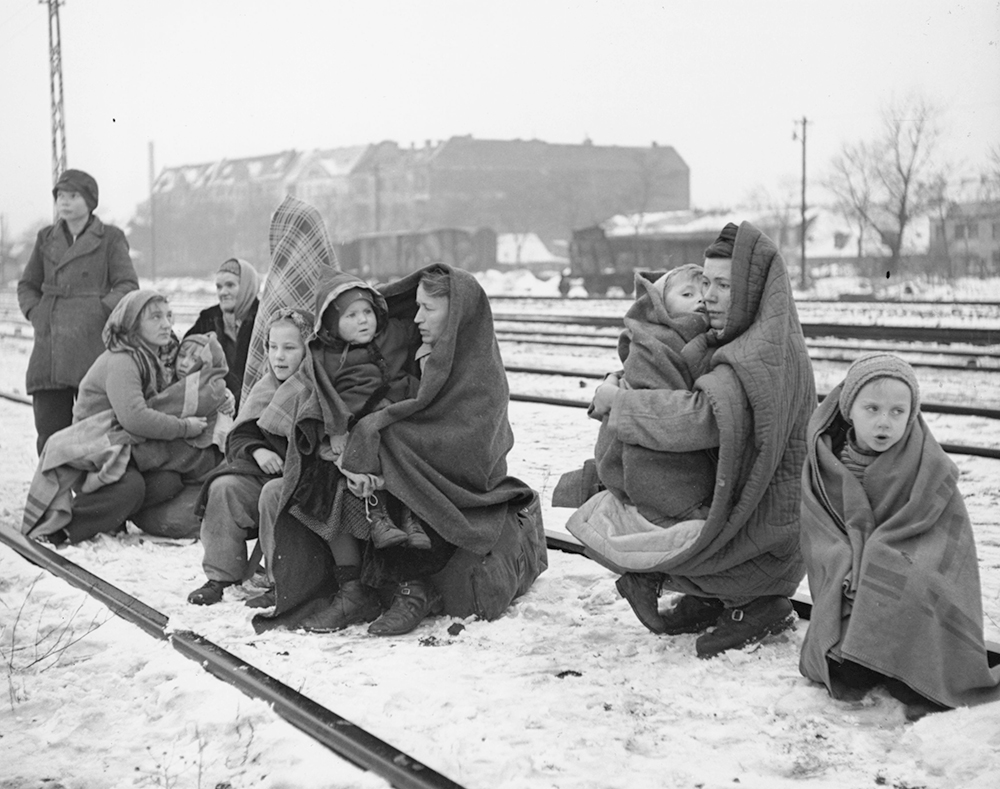
In Rachel Seiffert’s searingly beautiful fifth novel, the author returns to Germany, 1945 – ground she previously explored in The Dark Room, her Man Booker-shortlisted debut. Once the Deed is Done opens with a boy, Benno, looking out of his window at night, having been woken by sirens from the munition works. Elsewhere in the town, Hanne and Gustav discover a runaway woman and young child sheltering in their shed. In the morning, the woman has fled, leaving just ‘the winter child’. Hanne decides to care for her, in secret, ‘because she was a child – just a child – left behind in this cold time… What else could she do but hold her?’ They call her Ditte, although ‘the child wasn’t theirs to be naming’. When Hanne’s daughter suggests she relinquish Ditte to the approaching Allies, Hanne inwardly protests: ‘Why should she give the child to Americans? To soldiers? To anyone who didn’t know her?’ So where does the child belong?
This ‘winter child’ is one of many children in the novel, composed of the interleaved stories of around ten characters. Along with Ditte are Sasha and his older sister Yeva, two Ukrainians separated from their mother, who arrive at the former munition works once it has become a British-run camp for displaced people. These three stories stand in for many more. As late as 1948, we are told, the UN recorded 347,057 displaced children in Germany.
Sieffert weaves these tales in with those of German children: Benno and his brother Udo; his friend Freya and her sister Ursel; and the older children of the town, like Hanne’s Kurt, gone away to fight, their return eagerly awaited. The author gestures towards the appalling suffering that war inflicts on all children, not just those who are displaced. Kurt has lost an arm at the front, so cannot return to do the yard work for which he had been destined; Benno, Freya and Ursel find their own escape from the atrocities they are on the edge of understanding, playing in an abandoned shepherd’s hut – only to face their impotence, expressed by Ursel as a knowledge that ‘she wasn’t supposed to ask… it was like she was supposed to forget’.
Once the Deed is Done is a powerful story of war children, and also about the women who care for them. We spend the most time with Ruth, an English Red Cross nurse, and the camp’s welfare officer. ‘What more might they find here?’ she wonders, unnerved when the munition works are discovered. Ruth is Jewish. Her father fled Poland, along with other exiles who had been ‘stripped of their savings, their reputations; torn from friends and family, left to throw themselves on London mercy’. But Seiffert doesn’t focus on Ruth’s Jewishness; indeed she turns away from the horrors of concentration camps to examine instead ‘many more such cruelties – in barracks and brickyards and munition works’. Ruth spends months creating records of displaced people, attempting to trace relatives and uncover their stories. As the sirens echo through the pages, Ruth dreads the discovery of what else could be hiding in plain sight.
Seiffert’s writing beautifully captures this devastating moment of history, full of pain and horror, shame, trauma and grief. But there is resilience, too. The winter children, suffering as a result of war, are also alive, continuing to love, hope and dream, trusting that spring will come.








Comments